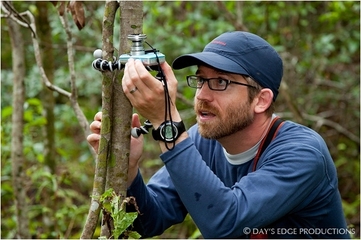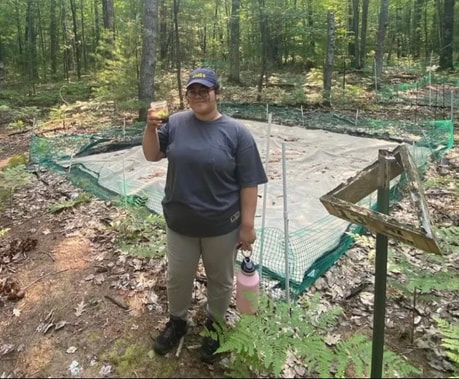
Dr. Jason Kolbe
jjkolbe(at)uri.edu
Phone: 401.874.9731
Google Scholar Profile
I'm a Professor in the Department of Biological Sciences at the University of Rhode Island. My research focuses on the ecological and evolutionary responses of natural populations to recent, human-mediated global change, such as biological invasions, climate change, and urbanization. I take an integrative approach combining field and laboratory experiments, population genetic analyses, comparative analyses of phenotypic and ecological variation, and environmental niche modeling. Much of my research centers on how evolutionary processes facilitate or constrain the ability of alien species to invade non-native areas and whether we can accurately predict the future course of invasions. Another primary focus is understanding eco-evolutionary dynamics and contemporary evolution in natural populations. For this work we use islands in the Bahamas as experimental units. Recent research has focused on the ecological and evolutionary effects on hurricanes in Caribbean island systems. Most of my current research uses Anolis lizards, but I have a general interest in amphibians and reptiles and other organisms suitable for asking questions about global change and evolutionary ecology.
jjkolbe(at)uri.edu
Phone: 401.874.9731
Google Scholar Profile
I'm a Professor in the Department of Biological Sciences at the University of Rhode Island. My research focuses on the ecological and evolutionary responses of natural populations to recent, human-mediated global change, such as biological invasions, climate change, and urbanization. I take an integrative approach combining field and laboratory experiments, population genetic analyses, comparative analyses of phenotypic and ecological variation, and environmental niche modeling. Much of my research centers on how evolutionary processes facilitate or constrain the ability of alien species to invade non-native areas and whether we can accurately predict the future course of invasions. Another primary focus is understanding eco-evolutionary dynamics and contemporary evolution in natural populations. For this work we use islands in the Bahamas as experimental units. Recent research has focused on the ecological and evolutionary effects on hurricanes in Caribbean island systems. Most of my current research uses Anolis lizards, but I have a general interest in amphibians and reptiles and other organisms suitable for asking questions about global change and evolutionary ecology.
Current Lab Members

Paola Cruz-Martinez
pcruzmartinez(at)uri.edu
Twitter: @paothescientist
Paola is a M.S. student in the Biological and Environmental Sciences program at URI. She received her B.A. in Environmental Studies (with a minor in Biology) from SUNY Purchase College, where her senior thesis looked at the contamination of microplastics within the intertidal zone at Rye Beach, NY. As an undergraduate, she studied the invasion of Radix auricularia in North America. She also worked under the long-term Detrital Inputs and Removal Treatment study at the University of Michigan Biological Station. Paola is interested in invasion ecology, restoration ecology, and climate change impacts.
pcruzmartinez(at)uri.edu
Twitter: @paothescientist
Paola is a M.S. student in the Biological and Environmental Sciences program at URI. She received her B.A. in Environmental Studies (with a minor in Biology) from SUNY Purchase College, where her senior thesis looked at the contamination of microplastics within the intertidal zone at Rye Beach, NY. As an undergraduate, she studied the invasion of Radix auricularia in North America. She also worked under the long-term Detrital Inputs and Removal Treatment study at the University of Michigan Biological Station. Paola is interested in invasion ecology, restoration ecology, and climate change impacts.
